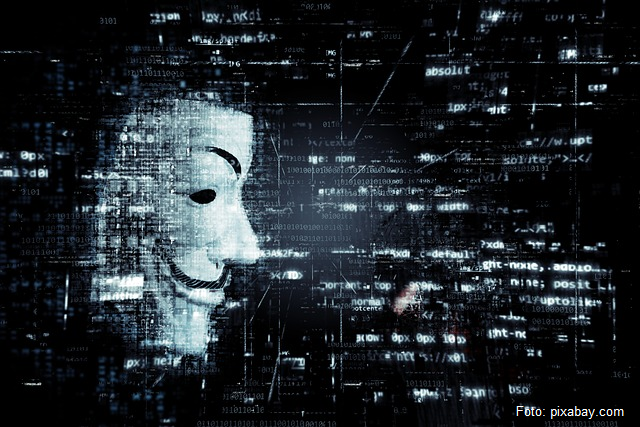European Month for Cybersecurity
European Cyber Security Month is an annual EU campaign dedicated to promoting cyber security

Corina Cristea, 20.10.2023, 12:51
European Cyber Security Month is an annual EU campaign dedicated to promoting cyber security and providing information on digital security through awareness-raising and the exchange of best practices. Every year in October, hundreds of activities take place across Europe – conferences, workshops, training courses, webinars, presentations, and online quizzes – with the aim of providing citizens with resources to learn more about online protection. “European Cyber Security Month aims to raise awareness of cyber security and make us aware of the threats in cyberspace. It reminds us that we can easily strengthen our own cyber security by adopting good digital habits. By being on the alert against scammers, we can stay safe”, urged Margaritis Schinas, Vice President for Promoting the European Way of Life, at the official launch of the campaign at the end of September. Reality shows us that cyber-attacks and cybercrime are increasingly numerous and sophisticated across Europe. At the same time, this trend is expected to continue to grow in the future, given the predictions that 22.3 billion devices worldwide will be connected by 2024 to the Internet of Things (a.k.a. network of connected digital devices).
Digitization offers enormous opportunities and provides solutions for many of the challenges facing Europe, not least during the crisis caused by the COVID-19 pandemic, but at the same time, say those in Brussels, it exposes the economy and society to cyber threats. A number of critical sectors such as transport, energy, healthcare, and finance have become increasingly dependent on digital technologies for their core activities. And a stronger security response to build an open and secure cyberspace can increase citizens trust in digital tools and services. Cezar Bărbuceanu, expert within the National Cyber Security Directorate, said:
“The attacker tries to come up with any kind of information/offer that can attract attention and be impactful in order to fool the average user. Not necessarily to steal his data or money from their account, but through him he can reach many other people who can work in many other places, and can enter and penetrate the operating systems of companies where friends, neighbors, acquaintances of the people they manage to trick. Usually these attacks, these types of phishing, come in waves, and take most people by surprise, because from one user it can go to 1,000 and so on, it can spread very quickly in a very short time.”
Cyber security can be defined as the sum of all the measures taken to create safety in the online environment, say experts in the field. They remind us that phone scams, online scams, card scams, fake winnings that some or others offer us are just some of the ways in which various attackers try, and sometimes even succeed, to get benefits by resorting to deception. Manuela Catrina, deputy director of the NSCD, National Cyber Security Directorate, spoke on Radio Romania about the risks and challenges that the international cyber security ecosystem is facing today, but also about the benefits:
“First of all, after the pandemic period, we have a much greater increase in digitization, which makes us happy. We all encounter the digital area more and more often. Obviously, the digital area comes with its threats. Many of us learn them from our children, because we had no way of learning them from our parents, its a very new area. There are various risks, but I would not like to talk only about risks. Its also an area of benefits that come here, and I think we should try to explain better how these things are used, because 90% of threats can be countered with very, very simple practices. At home we lock our doors, change our passwords, simple things, hygiene, that is, not sophisticated things. 10% are perhaps very sophisticated threats, and there the experts have a lot of work to do. But probably our chance in Romania is to transfer the weak link, the human, as we say in the area of cyber security, to the strong link. I am convinced that we can do it, because I have a lot of confidence that Romanians are intelligent people, people who really like new technology. If my grandmother learned how to use the phone and use social networks in a safe way, I think that your grandmother and your aunt and the neighbors child know how to do it too. So together we can do this.”
Specialists also come with advice: in order to protect ourselves from threats in cyberspace, vigilance and suspicion are needed. They advise caution in accessing e-mail, the source of the message must be checked, it is very important to see where it comes from, what is its legitimacy, you may have to call on the phone if it is a company or an offer from someone where there is access and contact, the text must be checked because, as a rule, the attackers, most of them not being from Romania, use translation tools that translate the text somewhat incorrectly. One must check if the offer is current, do a Google search before accessing or clicking on any kind of link received. In other words, simple things that can make a difference.






























